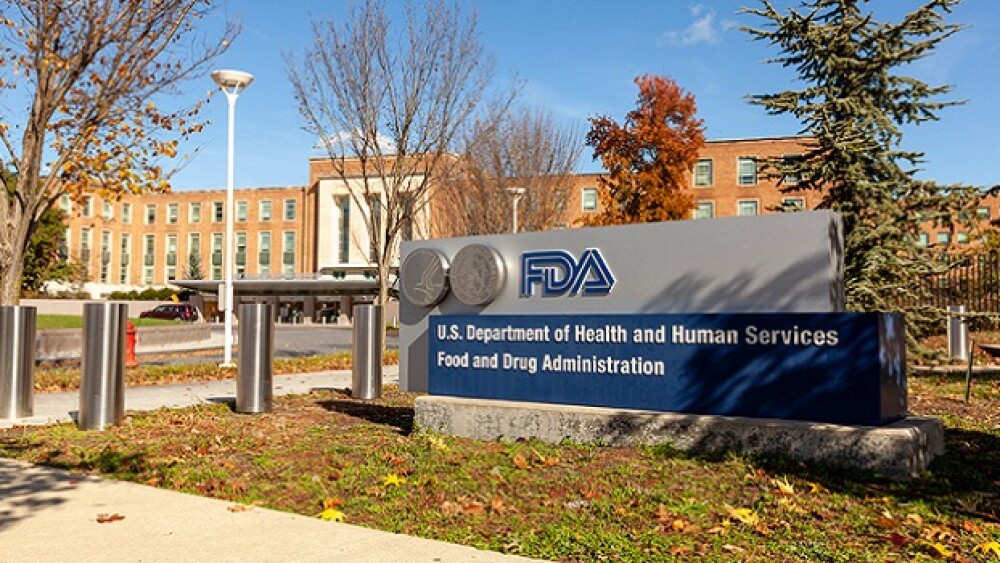Enanta Pharmaceuticals, Inc . today announced positive topline data from a Phase 1 study assessing the safety, tolerability, and pharmacokinetics (PK) of orally administered single ascending doses (SAD) and multiple ascending doses (MAD) of EDP-235 in healthy adult subjects.
– 200mg and 400mg Once-Daily Doses Achieved Strong Exposure Multiples Over EC90 and Were Generally Safe and Well-Tolerated
– Plan to Initiate Phase 2 Study in 4Q 2022
WATERTOWN, Mass.--(BUSINESS WIRE)-- Enanta Pharmaceuticals, Inc.. (NASDAQ: ENTA), a clinical-stage biotechnology company dedicated to creating novel, small molecule drugs for viral infections and liver diseases, today announced positive topline data from a Phase 1 study assessing the safety, tolerability, and pharmacokinetics (PK) of orally administered single ascending doses (SAD) and multiple ascending doses (MAD) of EDP-235 in healthy adult subjects. EDP-235, a coronavirus 3CL protease inhibitor, which received Fast Track designation from the U.S. Food and Drug Administration (FDA), is specifically designed to be a once-daily, oral antiviral treatment for COVID-19. Data from the Phase 1 study demonstrated favorable safety, tolerability, and PK with strong exposure multiples over the EC90, thereby supporting the advancement of EDP-235 into a Phase 2 study using once-daily dosing, without ritonavir.
“We are very pleased with the encouraging results from our Phase 1 study of EDP-235 showing that it was generally safe and well-tolerated up to a once-daily dose of 400mg, which provided plasma drug levels that were 6-fold and 12-fold over the plasma protein adjusted EC90 for the Alpha variant and the Delta variant, respectively. Moreover, EDP-235 is projected to have four times higher drug levels in lung tissue compared to plasma, which would drive exposure multiples to 24-fold and 48-fold for the respective variants,” stated Jay R. Luly, Ph.D., President and Chief Executive Officer of Enanta Pharmaceuticals. “Preclinical data show good distribution into other key target tissues, which may allow EDP-235 to inhibit the virus at possible sites of ongoing replication potentially linked to long COVID. Our data support a convenient dosing regimen, with strong exposure multiples for both the 200mg and 400mg doses, without the need for ritonavir boosting. We are targeting a one pill, once-a-day antiviral treatment regimen that is active against all COVID-19 variants of concern and look forward to moving EDP-235 into a Phase 2 study in the fourth quarter of this year.”
This first-in-human, randomized, double-blind, placebo-controlled Phase 1 study enrolled healthy volunteers to evaluate the safety, tolerability, and PK of oral EDP-235 in SAD and MAD for seven days, and the effect of food. All SAD and MAD cohorts enrolled eight participants who were randomized to receive EDP-235 or placebo in a 3:1 ratio. To optimize dose selections, the study evaluated a broad range of single and multiples doses in fasted and fed states. The SAD phase included five cohorts (50mg to 800mg, fasted and/or fed) and the MAD phase included four cohorts (200mg to 800mg, fasted and/or fed).
A total of 72 subjects (n=40 in SAD; n=32 in MAD) received at least one dose of EDP-235 or placebo. Overall, EDP-235 was generally safe and well-tolerated in healthy subjects up to 400mg for up to seven days. The majority of adverse events (AEs) were mild, with headache and gastrointestinal related symptoms (e.g. nausea, abdominal discomfort) being the most frequently reported AEs during the MAD phase. There were three study discontinuations: one moderate headache in the 400mg fasted cohort, one severe headache in the 800mg fed cohort and one grade 3 ALT/grade 2 AST elevation in the 800mg fed cohort.
EDP-235 exposure increased approximately proportionally with increasing single and multiple doses, with a consistent half-life ranging from 13 to 22 hours, resulting in a PK profile suitable for once-daily dosing. Exposure was enhanced with food administration of a standard meal. EDP-235 once-daily taken with food, resulted in mean trough plasma levels at steady state that were higher than the plasma protein adjusted EC90 of EDP-235 in Vero cells as follows:
- 200mg: 3-fold for Alpha and 6-fold for Delta variant
- 400mg: 6-fold for Alpha and 12-fold for Delta variant
Considering a preclinical lung to plasma ratio of 4:1, lung levels are predicted to be as follows:
- 200mg: 12-fold for Alpha and 24-fold for Delta variant
- 400mg: 24-fold for Alpha and 48-fold for Delta variant
Based on these positive data, Enanta is moving forward with the clinical development of EDP-235, targeting a fourth quarter initiation of a Phase 2 study exploring doses of 200mg and 400mg once-daily, pending review with the FDA.
About EDP-235
EDP-235, Enanta’s lead 3CL protease inhibitor, which has Fast Track designation, is being developed for the treatment of COVID-19. Preclinical data show that EDP-235 potently blocks the replication of SARS-CoV-2 in multiple cellular models. For example, in Vero cells an EC90 of 11 and 6.2 nanomolar was observed for the Alpha and Delta variant, respectively, positioning EDP-235 among the most potent direct-acting antivirals currently in development for SARS-CoV-2 infection. Preclinical studies also show that EDP-235 has favorable distribution into lung cells as well as other key target tissues. In addition to SARS-CoV-2, EDP-235 has potent antiviral activity against other human coronaviruses, enabling the potential for a pan-coronavirus treatment, including possibly coronaviruses that may infect human populations in the future.
About Enanta Pharmaceuticals, Inc.
Enanta is using its robust, chemistry-driven approach and drug discovery capabilities to become a leader in the discovery and development of small molecule drugs for the treatment of viral infections and liver diseases. Enanta’s research and development programs include clinical candidates currently in development for the following disease targets: respiratory syncytial virus (RSV), SARS-CoV-2 (COVID-19) and hepatitis B virus (HBV). Enanta is also conducting research in human metapneumovirus (hMPV).
Enanta’s research and development activities are funded by royalties from hepatitis C virus (HCV) products developed under its collaboration with AbbVie. Glecaprevir, a protease inhibitor discovered by Enanta, is part of one of the leading treatment regimens for curing chronic HCV infection and is sold by AbbVie in numerous countries under the tradenames MAVYRET® (U.S.) and MAVIRET® (ex-U.S.) (glecaprevir/pibrentasvir). Please visit www.enanta.com for more information.
Forward Looking Statements Disclaimer
This press release contains forward-looking statements, including statements with respect to the prospects for advancement of EDP-235 for treatment of COVID-19. Statements that are not historical facts are based on management’s current expectations, estimates, forecasts and projections about Enanta’s business and the industry in which it operates and management’s beliefs and assumptions. The statements contained in this release are not guarantees of future performance and involve certain risks, uncertainties and assumptions, which are difficult to predict. Therefore, actual outcomes and results may differ materially from what is expressed in such forward-looking statements. Important factors and risks that may affect actual results include: the impact of development, regulatory and marketing efforts of others with respect to competitive treatments for COVID-19; the development risks of Enanta’s program for COVID-19; the competitive impact of development, regulatory and marketing efforts of others in this disease area; any continuing impact of the COVID-19 pandemic on business operations and clinical trials; Enanta’s lack of clinical development experience; Enanta’s need to attract and retain senior management and key research and development personnel; Enanta’s need to obtain and maintain patent protection for its product candidates and avoid potential infringement of the intellectual property rights of others; and other risk factors described or referred to in “Risk Factors” in Enanta’s Form 10-Q for the fiscal quarter ended March 31, 2022, and any other periodic reports filed more recently with the Securities and Exchange Commission. Enanta cautions investors not to place undue reliance on the forward-looking statements contained in this release. These statements speak only as of the date of this release, and Enanta undertakes no obligation to update or revise these statements, except as may be required by law.
View source version on businesswire.com: https://www.businesswire.com/news/home/20220729005109/en/
Source: Enanta Pharmaceuticals, Inc.





